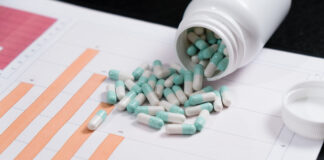Tag: antidepressant effectiveness
Stop Using Antidepressants Except for “the Most Severe Depression,” Experts Say
Experts advocate limiting antidepressant use to only the most severe cases of depression, emphasizing the need for social and psychological interventions.
Antidepressants Increase Suicide Attempts in Youth; No Preventative Effect
Researchers find that SSRIs increase suicide attempts up to age 24, and have no preventative effect at any age, even for those at high risk of suicide.
No Benefit for Adding Antidepressants to CBT in Severe Depression
For those with severe depression, inpatient CBT was effective but the adding antidepressants did not improve treatment outcomes.
New Data Reveal the Full Extent of STAR*D Failure
The initial study, which has been used to promote antidepressants, employed outcome switching to hide poor results.
Regulators Are Approving Drugs Without Clear Evidence That They Work
Drug regulators frequently approve drugs despite contradictory clinical trial results and without evidence of clinical benefits.
Garbage in, Garbage out: The Newest Cochrane Meta-Analysis of Depression Pills...
In May 2021, Cochrane published a network meta-analysis of depression pills for children. The abstract is misleading and reads like drug company marketing.
Is There a Small Group for Whom Antidepressants Are Effective?
In a new study, researchers found no evidence of antidepressant group variance, which means that there's no particular group of patients who improve more than others on the drug.
SSRI Ineffective at Treating Depression in Individuals with Chronic Kidney Disease
Dr. Madhukar Trivedi and colleagues find that the SSRI sertraline does not reduce depressive symptoms any more than placebo in people with Chronic Kidney Disease.
Study Investigates Physicians’ Beliefs About Placebo and Nocebo Effects of Antidepressants
Surveyed doctors overestimate pharmacological effects of antidepressants and underestimate placebo effects.
Rising Rates of Suicide: Are Pills the Problem?
If you’ve read recent reports that state “US suicide rates surge to a 30 year high,” you might first justify the reality with the fact that things feel very wrong in our world today. On a personal, national, and planetary level, people are suffering to survive and the distress is coming from all sides – medical to economic to existential. But you probably also wonder why more people are choosing this permanent and self-destructive path, and feel compelled to submit to seemingly logical appeals to provide these individuals more help and greater access to treatment. Surprise: that may be the last thing our population of hopeless and helpless needs. Life’s inevitable challenges are not the problem. It’s the drugs we use that are fueling suicide.
“If Antidepressants Don’t Work Well, Why Are They So Popular?”
“The true balance of risk versus benefit for people taking these kinds of antidepressants will probably only emerge when independent researchers have access to...
“The Unfulfilled Promise of the Antidepressant Medications”
A new article in The Medical Journal of Australia laments that, while antidepressant use continues to climb, the research evidence shows that their effectiveness...
Largest Meta-Analysis of Antidepressants Finds Doubled Risk of Suicide in Youth
The largest-ever meta-analysis of antidepressant trials appeared yesterday in the British Medical Journal. Researchers from the Cochrane Collaboration reviewed 70 trials (involving 18,526 subjects), to find that - counter to the initially-reported findings - antidepressants doubled the risk of suicide and aggression in subjects under 18. This risk had been misrepresented in the original study reports, the authors say, and suggest that the risks to adults may be similarly under-reported.
What Disability Benefit Trends Tell Us About Psychiatric Treatments and the...
If antidepressants are effective, and people with depression are more likely to be prescribed them, then you would expect the consequences of depression to start to lessen. One of those consequences, according to government statistics, is being out of work. But what we see is quite the opposite: Increasing use of antidepressants correlates with increased numbers of people with depression who are out of work and claiming benefits, and increasingly on a long-term basis. And this is at a time when disability due to other medical conditions has fallen.
Psychiatrists Overestimate Antidepressants, Underestimate Placebo
Recent meta-analyses of antidepressant clinical trials have revealed that up to 82% of the effects associated with the drugs may be attributed to placebo and non-medication factors. A new study examined the attitudes of psychiatrists toward these non-pharmacologic factors and found a large discrepancy between their beliefs and the empirical evidence.
Antidepressants Not More Effective Than Therapy for Major Depression
A new study, published this week in BMJ, found no major differences in the effectiveness of cognitive behavioral therapy (CBT) and antidepressants. When the researchers compared previous studies, they found no major differences in relapse rates or level of treatment response between those taking antidepressants and those undergoing CBT.


















